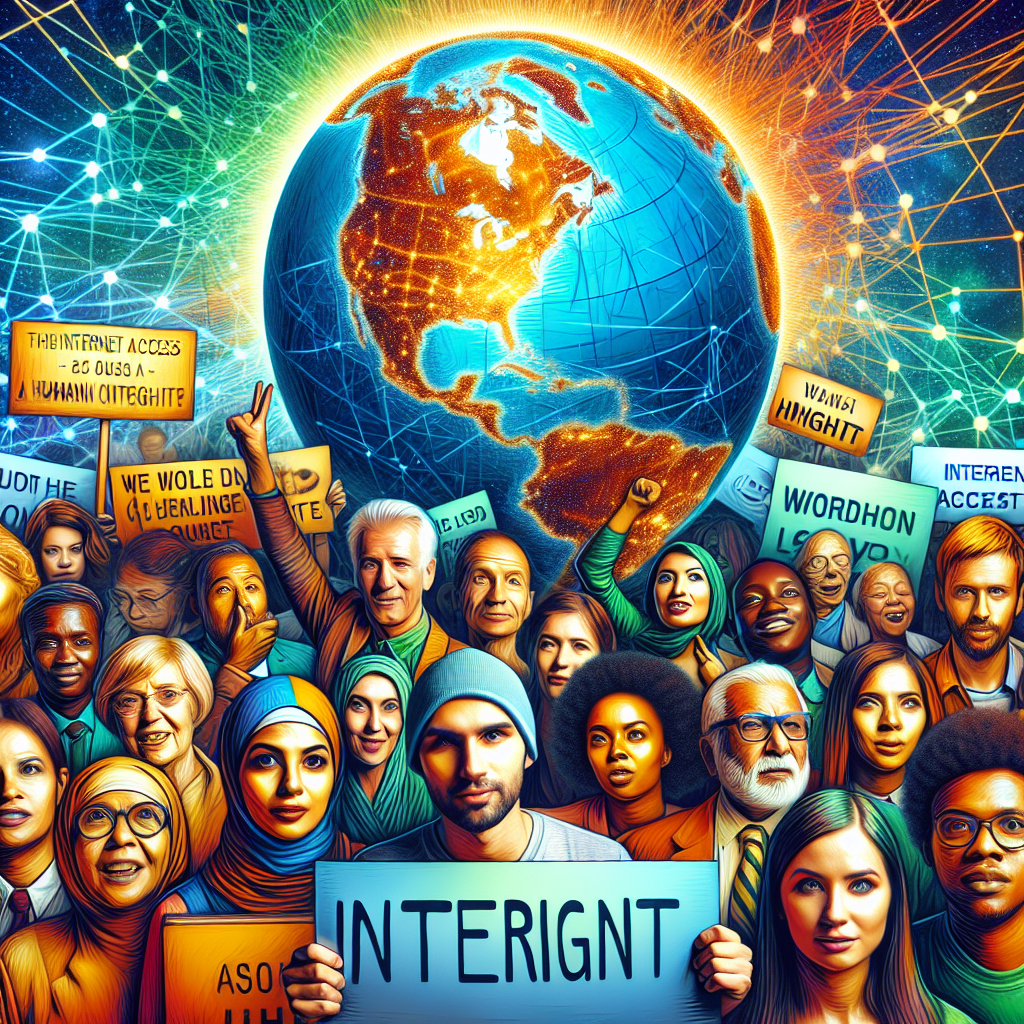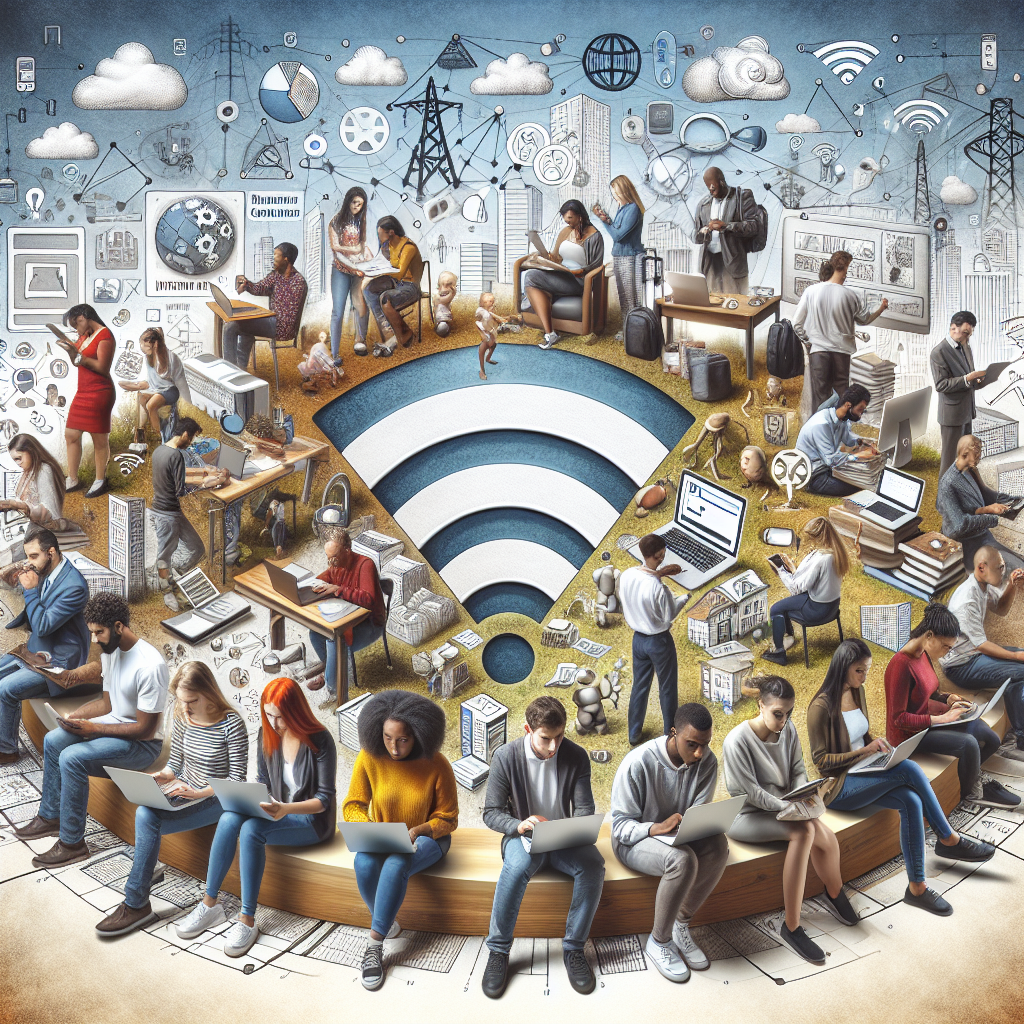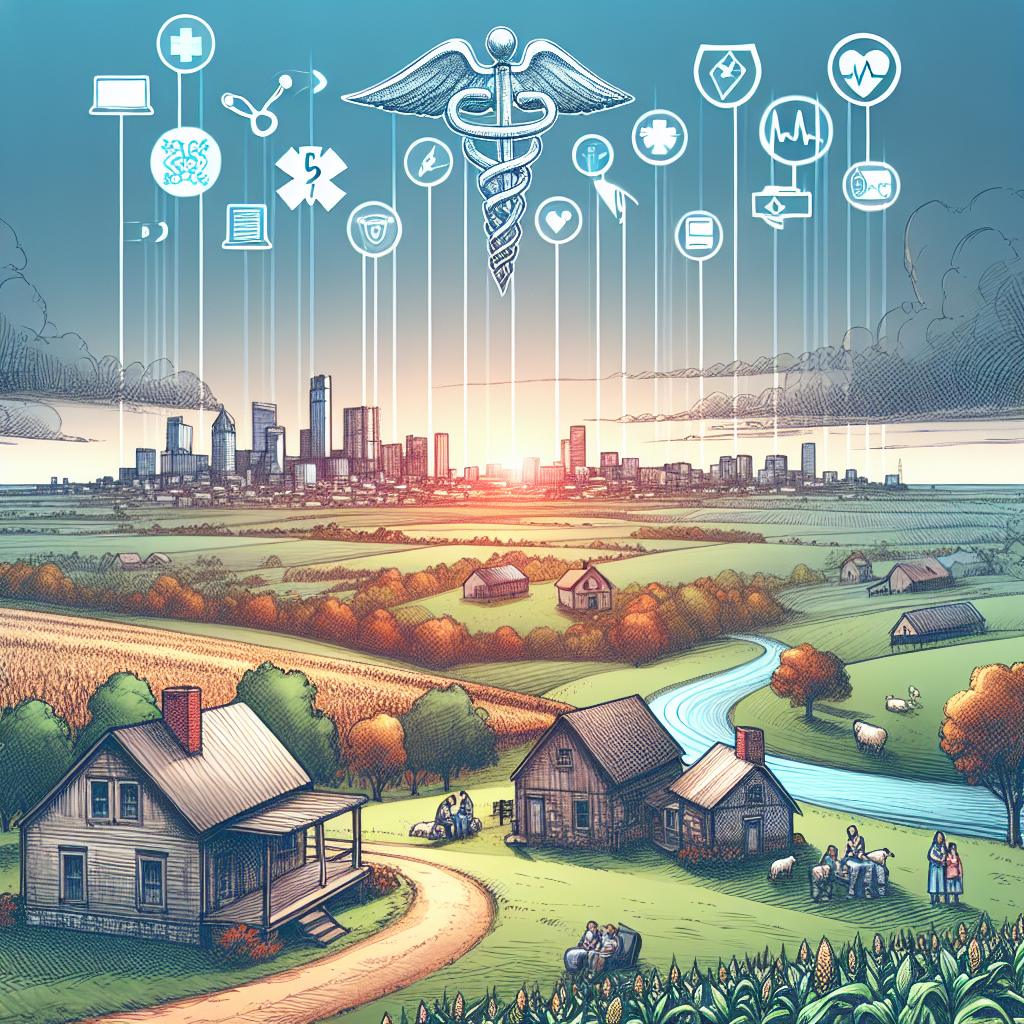In today’s modern world, access to the internet has become a necessity rather than a luxury. The ability to connect with others, access information, and engage in online activities has transformed the way we live, work, and communicate. However, not everyone has equal access to the internet, which raises serious concerns about digital inequality and exclusion. Advocacy for Internet Access as a Human Right is a crucial movement that seeks to ensure that everyone has the right to access and benefit from the vast opportunities that the internet has to offer. Join us in championing this essential cause and creating a more inclusive and equitable digital world for all.
Understanding Internet Access as a Human Right
In today’s interconnected world, the concept of human rights extends beyond traditional freedoms to encompass the digital realm. As society becomes increasingly reliant on the internet for information, communication, and participation in public life, the notion of internet access as a human right has gained prominence.
Defining Human Rights
Human rights are fundamental rights and freedoms that every individual is entitled to, simply by virtue of being human. These rights are inherent, universal, and inalienable, encompassing civil, political, economic, social, and cultural dimensions. The right to internet access falls within the realm of economic and social rights, as it is closely linked to individuals’ ability to participate fully in modern society.
Evolution of Human Rights in the Digital Age
The rapid advancement of technology has transformed the way people exercise their human rights. In the digital age, access to the internet has become essential for the realization of various rights, including the right to information, freedom of expression, education, and participation in political processes. As such, the recognition of internet access as a human right reflects the evolving nature of rights in response to technological advancements.
The Digital Landscape and Connectivity
Understanding Internet Access as a Human Right
In the modern era, the concept of internet access has evolved beyond mere convenience and transformed into an essential utility that underpins numerous aspects of daily life. As societies become increasingly digitized, the ability to connect to the internet is no longer a luxury but a fundamental requirement for participation in economic, social, and political activities.
Importance of Internet Access
The importance of internet access can be likened to the significance of electricity or clean water in contemporary society. It serves as a gateway to a wealth of information, educational resources, and opportunities for communication and collaboration. From accessing online education and job opportunities to engaging in e-commerce and staying informed about current events, the internet has become a vital tool for personal and professional development.
Disparities in Internet Access Across Regions
Despite the ubiquity of the internet in many parts of the world, significant disparities persist in terms of access and connectivity. While urban centers and developed countries enjoy high-speed broadband connections and widespread internet coverage, rural areas and developing regions often struggle with limited infrastructure and connectivity challenges. These disparities not only exacerbate existing social and economic inequalities but also hinder progress towards achieving global development goals.
In conclusion, recognizing internet access as a human right entails acknowledging the transformative power of connectivity in shaping individual opportunities and societal progress. Efforts to bridge the digital divide and ensure universal access to the internet are essential in fostering a more inclusive and equitable digital landscape for all.
Current Advocacy Efforts

Global Initiatives Promoting Internet Access as a Human Right
- The United Nations has recognized the importance of internet access in achieving sustainable development goals, leading to initiatives like the Broadband Commission for Sustainable Development.
- Non-governmental organizations such as Access Now and the Electronic Frontier Foundation actively advocate for internet access as a fundamental human right, highlighting issues of digital equity and inclusion.
- Global advocacy efforts often focus on bridging the digital divide, ensuring that marginalized communities have equal access to information, education, and opportunities online.
Role of Governments and Organizations in Advocacy
- Governments play a crucial role in advocating for internet access as a human right by enacting policies that promote universal connectivity and digital literacy.
- International organizations like UNESCO and the World Bank collaborate with governments to support initiatives that expand internet infrastructure and affordability.
- Civil society organizations work alongside governments to hold them accountable for upholding the right to internet access and address barriers to connectivity, such as censorship and surveillance.
Challenges and Obstacles
Economic Barriers to Internet Access
The primary obstacle in advocating for internet access as a human right lies in the economic disparities that prevent widespread connectivity. The cost of internet services can be prohibitive for individuals and communities with limited financial resources. In many regions, particularly in developing countries, the expense of purchasing devices like smartphones or computers, as well as paying for data plans, poses a significant barrier to accessing the internet. This economic barrier perpetuates a digital divide that hinders marginalized populations from enjoying the benefits of online connectivity.
Moreover, the lack of competition in the internet service provider market can lead to monopolies or duopolies that result in high prices for consumers. This lack of affordability further exacerbates the issue of economic barriers to internet access as a human right. Efforts to address this challenge may involve advocating for policies that promote competition among providers and subsidize internet services for low-income individuals.
Infrastructural Limitations in Rural Areas
Another significant challenge in advocating for internet access as a human right is the infrastructural limitations that exist in rural and remote areas. In many regions, especially in developing countries, the necessary infrastructure for broadband internet connectivity is lacking. The cost of expanding internet infrastructure to reach rural communities can be prohibitively high for telecommunications companies, leading to a lack of investment in these areas. As a result, individuals living in rural and remote areas are often deprived of reliable internet access, impeding their ability to fully participate in the digital world.
Addressing infrastructural limitations in rural areas requires a multi-faceted approach that involves collaboration between governments, private sector entities, and non-profit organizations. Investments in expanding broadband infrastructure, such as laying fiber-optic cables and establishing wireless networks, are essential to bridging the gap in internet access between urban and rural areas. Advocacy efforts may focus on lobbying for government funding and incentives to encourage the development of internet infrastructure in underserved regions.

Impact of Internet Access on Society
In the realm of advocating for internet access as a human right, it is crucial to understand the profound impact that connectivity can have on society. Access to the internet serves as a powerful tool that can empower marginalized communities and enhance education and knowledge sharing in unprecedented ways.
Empowering Marginalized Communities
- Bridge the Information Gap: Internet access provides marginalized communities with the means to access information that was previously out of reach. This access can empower individuals with knowledge about their rights, resources for personal and professional development, and avenues for civic engagement.
- Economic Opportunities: By being connected to the internet, marginalized communities can tap into online job opportunities, entrepreneurship resources, and financial services that can help uplift them from poverty and marginalization.
- Amplifying Voices: The internet allows marginalized groups to amplify their voices, share their stories, and advocate for their rights on a global scale. Social media platforms, online communities, and digital advocacy campaigns enable individuals to raise awareness about social injustices and mobilize support for their causes.
Enhancing Education and Knowledge Sharing
- Equal Access to Education: Internet access levels the playing field by providing equal access to educational resources and opportunities for learning. Students from underserved communities can access online courses, digital libraries, and educational tools that supplement traditional classroom learning.
- Global Collaboration: The internet facilitates collaboration among students, educators, and researchers worldwide. Through online platforms, individuals can engage in knowledge sharing, research collaborations, and cultural exchanges that enrich the learning experience and foster global understanding.
- Continuous Learning: Internet access enables lifelong learning by offering a plethora of resources for skills development, personal enrichment, and professional growth. Online tutorials, webinars, and e-learning platforms empower individuals to acquire new knowledge and adapt to the evolving demands of the digital age.
In conclusion, the impact of internet access on society is multifaceted, transformative, and essential for advocating for internet access as a fundamental human right. By recognizing the power of connectivity in empowering marginalized communities and enhancing education and knowledge sharing, we can strive towards a more inclusive and equitable society where everyone has the opportunity to thrive and succeed.
Digital Inclusion and Equality
mpact of Internet Access on Society
Digital inclusion refers to the equitable access and usage of information and communication technologies, particularly the internet, by all members of society. It encompasses not only access to hardware and connectivity but also the skills and knowledge to effectively utilize digital tools. This concept is crucial in today’s increasingly digital world as the internet plays a central role in various aspects of modern life, including education, employment, healthcare, and civic engagement.
Bridging the Digital Divide
The digital divide represents the gap between those who have access to the internet and digital technologies and those who do not. This disparity can be influenced by various factors such as socioeconomic status, geography, age, and education level. Advocating for internet access as a human right is essential in bridging this divide as it ensures that everyone, regardless of their background or circumstances, has the opportunity to benefit from the vast resources and opportunities available online.
Promoting Equal Opportunities for All

Access to the internet is closely linked to economic and social opportunities. In today’s digital economy, many essential services and resources are primarily available online. This includes job postings, educational materials, healthcare information, government services, and social networks. By advocating for internet access as a human right, we can strive to create a more equitable society where everyone has an equal chance to access these opportunities and improve their quality of life.
The Future of Internet Access Advocacy
As technology continues to advance at a rapid pace, the advocacy for internet access as a human right is becoming increasingly crucial. The future of internet access advocacy lies in leveraging these technological advancements to ensure that internet access is not only widespread but also accessible to all individuals, regardless of their socio-economic background or geographical location.
Technological Advancements and Accessibility
In the coming years, advancements in technology such as 5G networks, satellite internet, and the Internet of Things (IoT) will play a significant role in improving the accessibility of the internet. These technologies have the potential to bridge the digital divide by providing faster and more reliable internet connections to even the most remote areas of the world. Advocates for internet access as a human right must stay abreast of these technological developments and push for policies that promote their widespread adoption.
Ensuring Sustainable and Equitable Internet Access for All
Sustainability and equity are key principles that should guide the future of internet access advocacy. It is not enough to simply provide internet access to individuals; it must be done in a way that is sustainable in the long term and ensures that marginalized communities are not left behind. Advocates must work towards policies that promote digital literacy, affordability, and data privacy to create a more equitable digital landscape for all individuals.
In conclusion, the future of internet access advocacy is intertwined with the rapid advancements in technology and the need to ensure that internet access is not just a privilege but a fundamental human right. By embracing these advancements and advocating for sustainable and equitable internet access, we can work towards a future where everyone has equal opportunities to harness the power of the internet.
FAQs Advocacy for Internet Access as a Human Right
What is the significance of advocating for internet access as a human right?
Advocating for internet access as a human right is crucial in today’s digital age, as the internet plays a fundamental role in enabling individuals to exercise their rights to freedom of expression, information, and participation in society. It allows people to access knowledge, communicate with others, express their opinions, and engage in social, economic, and political activities. Recognizing internet access as a human right helps ensure that everyone has equal opportunity to benefit from the vast resources and opportunities that the internet provides.
How does advocating for internet access as a human right promote social justice and equality?
Advocating for internet access as a human right is essential for promoting social justice and equality, as it helps address digital divides and disparities in access to information and opportunities. By recognizing internet access as a human right, governments and organizations are compelled to take action to bridge the digital divide and ensure that marginalized communities have the same opportunities to access and benefit from internet resources. This can help empower marginalized groups, reduce inequalities, and promote inclusive development in society.
What are some challenges in advocating for internet access as a human right?
One of the main challenges in advocating for internet access as a human right is the lack of recognition and understanding of the importance of internet access in enabling individuals to exercise their rights. Some governments and organizations may prioritize other issues over internet access, leading to limited resources and efforts being dedicated to bridging the digital divide. Additionally, issues such as censorship, surveillance, and restrictions on internet access can pose barriers to advocating for internet access as a human right in certain countries or regions.
How can individuals contribute to advocating for internet access as a human right?
Individuals can contribute to advocating for internet access as a human right by raising awareness about the importance of internet access in enabling individuals to exercise their rights and participate fully in society. They can also support organizations and initiatives that work towards bridging the digital divide and promoting equal access to the internet. Additionally, individuals can engage in advocacy efforts, such as contacting policymakers, participating in campaigns, and supporting policies that aim to secure internet access as a human right for all. By coming together and advocating for internet access as a human right, individuals can help ensure that everyone has the opportunity to benefit from the digital world.


